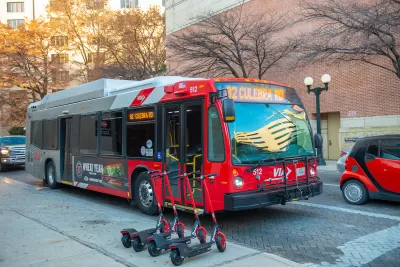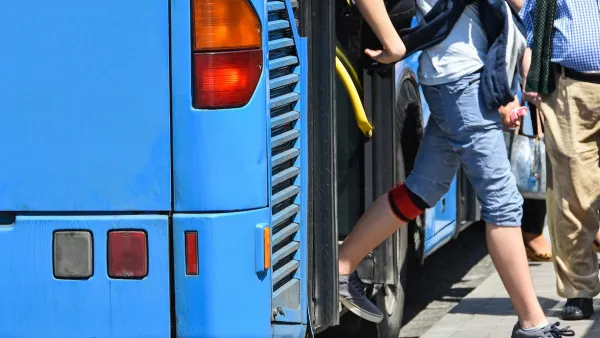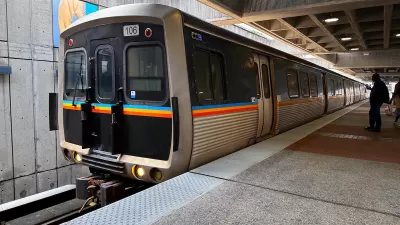Smaller transit agencies face some unique challenges.

While the focus of transit coverage skews toward big cities, mid-sized cities face their own transit struggles. In a piece in Streetsblog USA, Kea Wilson explains why smaller cities have a hard time maintaining reliable public transit systems.
A new analysis points to “the unique challenges of maintaining stable service in relatively less-populous urban areas that often gobble up outsized swaths of land” as a major reason why mid-sized cities had less reliable transit.
The article highlights cities like Baltimore, Orlando, Denver, and Sacramento, which all feature sprawling, car-dependent metro areas that “push residents to live and work on the auto-oriented edges of town and leave transit behind completely, starving agencies of the fares they need to make service improvements and making matters worse for the riders who remain.”
Smaller transit agencies face the same challenges as larger ones across the nation, including staffing shortages and budget shortfalls that make it difficult to improve service. Many also have a hard time tracking their service frequency and reliability because their vehicles lack GPS or other tracking devices. Meanwhile, a lack of dedicated transit infrastructure in smaller regions means bus service is impacted by car traffic.
Some, like Portland and San Antonio, still rate highly for transit reliability for their combination of service and data availability. “And if Baltimore and cities like it can't follow their lead, it doesn't bode well for their ability to deliver everything else a great transit network can provide.”
FULL STORY: Why Transit Reliability is Difficult in Midsized Cities

Planetizen Federal Action Tracker
A weekly monitor of how Trump’s orders and actions are impacting planners and planning in America.

Restaurant Patios Were a Pandemic Win — Why Were They so Hard to Keep?
Social distancing requirements and changes in travel patterns prompted cities to pilot new uses for street and sidewalk space. Then it got complicated.

Map: Where Senate Republicans Want to Sell Your Public Lands
For public land advocates, the Senate Republicans’ proposal to sell millions of acres of public land in the West is “the biggest fight of their careers.”

Maui's Vacation Rental Debate Turns Ugly
Verbal attacks, misinformation campaigns and fistfights plague a high-stakes debate to convert thousands of vacation rentals into long-term housing.

San Francisco Suspends Traffic Calming Amidst Record Deaths
Citing “a challenging fiscal landscape,” the city will cease the program on the heels of 42 traffic deaths, including 24 pedestrians.

California Homeless Arrests, Citations Spike After Ruling
An investigation reveals that anti-homeless actions increased up to 500% after Grants Pass v. Johnson — even in cities claiming no policy change.
Urban Design for Planners 1: Software Tools
This six-course series explores essential urban design concepts using open source software and equips planners with the tools they need to participate fully in the urban design process.
Planning for Universal Design
Learn the tools for implementing Universal Design in planning regulations.
Heyer Gruel & Associates PA
JM Goldson LLC
Custer County Colorado
City of Camden Redevelopment Agency
City of Astoria
Transportation Research & Education Center (TREC) at Portland State University
Camden Redevelopment Agency
City of Claremont
Municipality of Princeton (NJ)





























